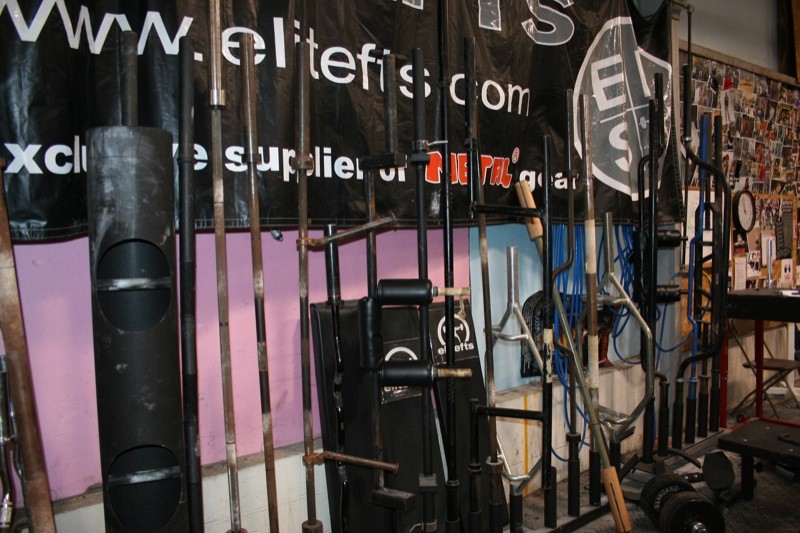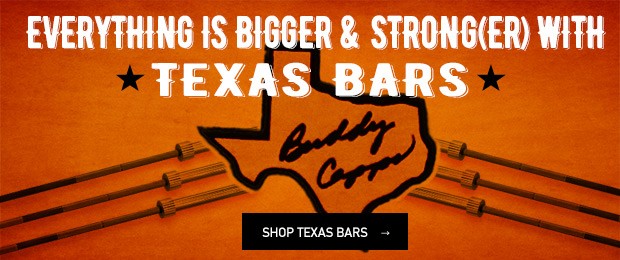
Many strength and conditioning coaches seem to have issues with sport coaches. It may seem as though the sport coach doesn’t understand, doesn’t care, or is adversarial. It often creates an "us against them" mentality, and then leads to confrontations rather than discussion — at least I know it did in the earlier part of my career. Over time I learned how to deal with them, with the help of others, and I ended up having great relationships with my sport coaches, even the ones for other teams and other schools via proxy of people leaving and going on. From my experience, and I have no resources to site on this, I think that the problem comes back to two roots: the lack of common vernacular and the misconceptions that come from this.
I’ll be honest, when sport coaches start talking about tactical strategies and using some certain style of offense to counter a defense by blah blah blah, yada yada yada, my eyes glaze over and it is as if Charlie Brown’s teacher is speaking. I have no clue what they’re saying. Likewise, when I start speaking about advanced periodization schemes or doing some certain exercises pre-practice to engage the ligamentous mechanoreceptors within the knee, they glaze over for me. I turn into Charlie Brown’s teacher.
RECENT: The Power of the Parable: Thomas Edison
Anyone who knows me would most likely say I have a bit of a fiery streak in me. I am passionate about what I do, and this has dulled by about 50% I’d say (not the passion itself, just the expression of it). At one point, I was working with a cross country coach who was notoriously difficult to deal with. We went round and around with each other and had a sit-down meeting when I asked the coach directly, “What do you want, coach? I’m having a hard time understanding what you’re wanting. Please tell me.” He told me quite plainly that he wanted a program to develop speed-strength (for middle distance and cross country runners? Okay, I thought, I can do this quite well). I went about doing plyometrics, squats for speed, Olympic lifts, etc., to develop speed-strength. I was quite proud of the program I wrote, although a bit perplexed as to why he’d want that. The next thing I know I get a call from the head track coach. He informed me that we were to have a meeting about the program. I show up and there is the head track coach, the throws coach, the cross country coach, and myself. I remember getting a bit anxious seeing three-to-one odds (three of them and one of me).
The head track coach said, “Bryan, we are having an issue with communication between the two of you, and I must say that it’s not for lack of trying on your part.” The cross country coach went from a smile to looking perplexed. The head track coach continued, “While our throws coach is a coach of the throws, his athletic background was actually as a middle distance and distance runner. I have asked him to come in here and work as a translator.”
The cross country coach piped up that he didn’t need a translator; I was just a shit strength-coach and needed to be fired. The throws coach then stepped in and said, “You asked him for a speed-strength workout, correct?”
“Yes, that’s correct. But he…” the cross country coach said.
“He gave you an outstanding program for the development of speed-strength. I think what you are actually wanting is...” Then the throws coach went into a long and technical way to say that what he actually wanted was speed endurance. The cross country coach agreed. The throws coach then said, “You two are to not have a conversation without me there again. I know exactly what you mean and what you wanted. Coach Mann gave you exactly what you said. There’s a language barrier here, and since I speak both languages, I will be your translator.” While the cross country coach was dejected and I was somewhat happy, I knew that I had been a part of the shortcoming and was a causative factor in the issue.
We didn’t have the same language, and with my assumption that I knew what he wanted based on what he had said, I got what he wanted completely wrong. The issue can pop up anywhere. If you were listening to someone speak Spanish and heard the word “exito", you would most likely think they were talking about an exit, and you’d be looking for a way to get out of the building. However, exito doesn’t mean exit or door or anything like it. Exito means success, and while you are looking for a doorway, they are finding the way to achieve success and think you are a moron for trying to get out of the building.
RELATED: Four-Week Block of Baseball Fall Training from Conjugate U for Position Guys and Pitchers
From this incident with the cross country coach, I learned something tremendous. About a year or two before this, I had read the book 7 Habits of Highly Effective People. To say this book is amazing is an understatement. To me, it’s one of the top books that no one is talking about anymore. It’s useful in all areas of my life. In this book, I remember a statement made that I realized I had completely violated after the translator comment had been made.
“Seek first to understand, then be understood.” I was far younger. I cared more about being the smart guy than understanding what he wanted. I, of course, thought I knew what he wanted, as I felt that I was the smartest coach around and knew it all. I have long since realized how little I know, and especially how little I knew back then and what a complete and utter moron I was.
I think that if we take this approach with coaches, we will have far better input and relationships. If I were to ask the coach to explain what he meant by speed-strength, I would have found by the language he used that he wanted speed-endurance instead. However, I keyed in on one word, and if it weren’t for the head coach and the throws coach, I may well have been fired. You have two ears and one mouth for a reason. Even if you think you know what they mean, ask questions to dig deeper. Seek to truly understand what it is they mean. Is there a language barrier? Are they using words that mean something else? Are they seeking success when you’re looking for the door? Make sure you understand what they’re truly wanting. After you are completely sure of what they are wanting, only then should you formulate your plan and speak your thoughts.

If we will seek first to understand and then be understood, we can circumvent many of the issues that cause animosity between the sport coach and the strength coach. Shoot, many times even the animosity between the strength coach and the athletic trainer. I know that once I put this into practice with my discussion with the ATC’s, I was able to improve my relationship with them and my efficiency of working with athletes. If I knew exactly what the trainer was thinking and why, I often agreed with their recommendation. I often went off half-cocked before I took the time to understand, and thought the ATC was fearful and ignorant. Since I have approached it differently, I actually have had the ATC’s approach me about my opinion about what to do.
In the world of strength and conditioning, it often seems like it’s a competition to beat your chest the hardest, yell the loudest, and have the most off-the-wall coaching cues. Why? Are we male peacocks trying to impress each other? How about we go to the root of the issue rather than continuing to have the same issue again and again? We are professionals dealing with professionals. If any of us don’t do a great job, we are at risk for being fired. If we consider that everyone is going in with their best thought and plan, let’s listen and move forward together.
WATCH: Mark Uyeyama SPS Presentation — The Progression of Strength and Conditioning
Is it possible that someone is a moron and doesn’t have the capacity to put together a coherent thought? It absolutely is possible. However, what I thought was ignorant in my earlier career I now may see as intelligent because I have learned the actual purpose behind it. Everything needs context, and that’s why you seek to understand before being understood. Maybe your first thought was right; maybe your first thought was completely wrong. If you don’t fully understand before jumping to your conclusion, you’ll only assume you were right.
By having these conversations, you rapidly increase the rate of your education. You’ll gain viewpoints, you’ll gain context, you’ll gain knowledge, and most importantly you’ll gain wisdom. Beyond that, your athletes will have the greatest propensity for success, as they will have their entire team moving in one unified direction, rather than being pulled in several opposite directions. By implementing seeking to understand first, I feel I have accelerated my education and overall body of knowledge. Instead of looking at everything from the lens of a powerlifter who had done traditional periodization and a Westside style of training, I’m now able to see the point of view of the person.
(As a side note, this includes going to Westside several times. So yes, I do truly know what it’s like to compete in that atmosphere in training. For the record, it was suspended safety bar good mornings and Luke Edwards was the only one to beat me that day.)
At one point, I remember ridiculing certain coaches behind their backs (or directly to them often times), and now I see the genius that they possessed and that I missed out on learning from them. Maybe they are or were trying to elicit a completely different response than I thought. Maybe I’m looking at things from a completely general template when I need to increase specificity focus during that phase. Maybe the person with the biggest squat, bench, and deadlift isn’t the best cross country runner, basketball player, etc. It’s only by changing your paradigm to seeking to understand before being understood that you’ll learn as much as possible as quickly as possible, and become strong(er) of mind for it.












1 Comment